Career Profiles
The course ANTHROP 3005: Careers with Anthropology prepares students from all sub-fields of anthropology for life beyond the degree. Students conduct exercises to discover what they are looking for in work and careers, they learn how to translate and communicate their anthropological and other skills to employers and clients, and they learn how to research their career communities using informational interviewing and other networking strategies.
A critical component of the course are guest speakers from a wide range of fields and professions. The guests discuss how they have leveraged their anthropological skills to network, get interviews, and land jobs. Below are profiles of some of the guest speakers who discuss their careers, how they use anthropology in their current positions, and share career advice for undergraduates. Most of the guests are alumni from our own program and were interviewed by students enrolled in the course.
Profiles of careers in/with anthropology
Cass Blair interviewed Cassie in 2023 to learn more about her internship experience. The interview was edited for clarity and conciseness.
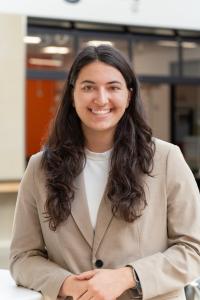
Biographical Sketch: Cassie Davis is a Research Assistant at the PAST Foundation. She graduated with a BS in Medical Anthropology from the Ohio State University in 2022. She started her work at the PAST Foundation as an intern in the summer.
What internship were you in? What is the organization you were working for? What were your roles and responsibilities?
I was a research intern at the PAST foundation. I started towards the end of May, in the summer of 2022 and then I left in Mid-August about a week before the next semester started. So, it was about a three-month long internship. It was me and another Ohio State student and we were there to just really support the research team and their evaluation of their summer programming.
The PAST Foundation does stem education, summer camps, and many other kinds of programming throughout the year. But that was the time we were there so that was their main focus. So, we had pre and post surveys that we did to evaluate the summer camps. Every week we would either have to drive out to the camp locations, which was all local in Columbus, or at the organization’s building, they would run camps, so we had to go and administer the surveys, we had to input the data, we kept track of parent consent forms because it’s all IRB compliant. Towards the end we did a little bit of preliminary analysis on the data. And then just throughout we also did observations, and I thought that was really helpful. One of my highlights of it is watching the campers, seeing how students interact. One of the goals of the Minecraft camp to help students engage in science and the virtual world. And they always seem to love it. There was a “Girls Who Lead” all girls Minecraft Camp and a co-ed Minecraft Camp. So, we observed both of those to see if the girls in the camp kind of felt more confident or more outspoken in the all-girls setting. And then we also got to write up reports on that programming. I helped do some note taking for the focus groups of student teachers, just see their feedback and help with the programming. We kind of had out foot in a lot of different doors: helping PAST itself with their programming and then also learning about stem identity, which was the main idea of the surveys, and how we can help increase participation in the stem fields and make all students feel welcome. That was really the goal.
How did you find your internship?
I was in ANTHROP 5650: Research Methods and Ethnography, taught by Dr. Cohen. His wife actually works at the PAST foundation, and so he has that connection to the PAST Foundation that way. And then he mentioned it in class and just said “any students that are interested let me know” so I reached out to him, got the information, and then applied, and got the interview that way.
Was your internship paid or unpaid? And did you get course credit for this internship?
It was a paid internship. There was no course credit.
You said you had to travel to the camps and the organizational building, were they a great distance away from each other?
No. One of their partners is Chemical Abstract Services (CAS). They’re like two minutes down the road, close to campus. PAST itself is located on Kinnear, it’s really close to Ohio State. And then another camp was at Mezzacello Urban Farm, which is about ten minutes away. They are down in downtown Columbus, but the person who runs the camp has chickens, they grow vegetables, like a pond, and the kids just get to learn about bioengineering and how to create sustainable technology and problem solving in that landscape so that was really cool to watch. Those were our two offsite locations. And then they had a bunch of camps running here at the building.
Was the application process difficult or did you find it easier because you already had that connection?
No, it wasn’t too difficult, pretty standard, I think. I just submitted a resume and cover letter like usual. And then it was a zoom interview with two members on the research team. It wasn’t intimidating which was nice. They were like a very welcoming group.
How many hours did you work at your internship per week?
It was a 30-hour week internship. So, we worked about all 30 hours every week, and then we did get a whole week off I think, for July Fourth, which was nice. And then a few times we worked slightly over if they had something going on, but not usually. It was pretty strict at that 30-hour mark.
Did you have trouble fitting it into your class schedule, did they work around your schedule? How did that all come together?
With it being in summer, I wasn’t taking any courses so that was nice. I could just focus all on this internship. But I was doing a senior thesis. So, I was meeting with my Ohio State advisor, and they were really flexible with like if I needed to meet at like 2 pm in the afternoon or go do, you know, on campus and I can make up the hours. I didn’t have to do that often, but they were understanding. So, it was nice.
Did you find it difficult to manage your time with your internship?
Not too much. It kind of felt like I was working like my first full time job. It was nice to kind of dip my toe in that world and kind of helped prepare me for life after graduation.
What would you say are the most valuable things that your internship taught you?
I think at that point when I was a student, I wasn’t super clear on what I wanted to do and mainly because I wasn’t sure what I was interested in at the time and so narrowing it down was really difficult. Which I’m sure is the case for a lot of students and anthropology students, because anthropology drew me there because it was so interdisciplinary, and I felt like I didn’t have to choose a major in a sense. But then the internship, it really helped show me that I really liked research, that’s kind of the direction I wanted to go in. And then that itself is kind of a big umbrella of like “I want to do research! Now what does that mean?” and just seeing that there’s this anthropology focused lens that can have practical applications. It’s really helpful to know because when you’re in the classroom and you hear all these case study examples of how this can be applied, it’s great. Then being able to go out and do it and gain that confidence and see that there’s opportunities out there after graduation to do the things that you really want to do was really comforting, I guess. And then the transferable skills of just being in a workplace and knowing how to talk to coworkers and talk to, you know, a supervisor, how to write a company report rather than a school paper. I guess knowing that I could get a job that I was passionate about, that I could make an impact in the world with, and that I could use my degree in, it was awesome.
Did your internship benefit your education?
Yeah, I think so. I think it just kind of makes you a little more confident and sure of yourself. I think when you’re learning new material, you learn how it can be applied to the real world rather than this abstract concept that you’re reading out of a textbook. You can say “okay, I can take these methods and I could apply them here” or “I remember applying them this way last summer”. So, I think it gives you that like tangible application that you can apply what you’re learning to towards.
Did you feel that your internship was a valuable step for you in pursuing a career after you graduated?
Definitely. I’m working now at the PAST Foundation, I just started a few months ago working here full time. So yeah, I had a great mentorship, great connections that helped me get my job after graduation, so it was very valuable.
How did the internship shape your career path after graduation? How did the internship help launch your career?
I’d say it gave me a focus. I really liked my internship, and it was really valuable. But even if it wasn’t what you wanted to do, it kind of shows you that you can be confident in closing that door, then start looking in another direction, and then take those like workplace transferable skills with you, you know. I think it's definitely helpful, no matter how it ends up playing out. And luckily for me, it was a positive experience, and the work I was doing I really liked. But it just kind of gives you clarity on how a workplace functions and knowing what's out there. I think knowing what's out there is like the hardest part, and applying for a job after college can be overwhelming. So, kind of having something to compare future job descriptions to, or other roles that you step into, it's not going be your only experience. And you can be like, “Oh, I really liked this part of when I was entering here, and this company doesn't have it. Maybe I should look for that in some other place.”
Did you find the department helpful in finding/supporting your internship?
I'd say yes. I think especially just with Dr. Cohen connecting me to the opportunity was probably the biggest thing.
Would you recommend internships to other students? Do you have any advice for students pursuing an internship?
Yes, definitely. If you want an internship, I’d say definitely start asking around, like don’t be afraid to just talk to people and say, “oh I really like what you’re doing like, is there any way I can help?” Because it sounds kind of intimidating at first but people that like what they’re doing are really excited to share with other people. And that's something I kind of learned: starting to like break through that wall. They're always welcoming, they want to talk to you and get you involved. And usually, they were in your shoes so it kind of helps to remind yourself of that, it makes it feel a little less intimidating. For starting an internship, I'd say just ask questions and learn as much as you can, I think. Just ask as many questions as you can. Don't be afraid to not know things and make the most of it.
Braelyn Gerchak interviewed Ariel on September 10, 2020. The interview was edited for clarity and conciseness.
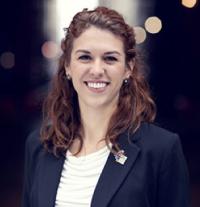
Biographical sketch: Ariel Miller is a 2013 graduate from The Ohio State University who earned a dual degree in Anthropology and Environment and Natural Resources. During her undergraduate years at Ohio State, she was an intern at the Ohio Ecological Food and Farm Association. She recently earned a Master’s in City and Regional Planning from The Ohio State University (2020) and became a Coordinator of Research and Technical Assistance at the Council of Development Finance Agencies.
Did you always have a career path, or did you find it along the way?
I think, if you're studying people, then you can study people alongside literally anything else. For example, even if you're practicing anthropology and math, you know people are involved, even if it's just numbers. So, I think it lends itself nicely to being paired with other disciplines. To answer your question, no I did not have a set career path. In fact, I haven't had a single job so far that I knew that job existed before I got it. I think careers are in a constant state of development and it is important to explore as many options within anthropology that interest you.
How do you use an anthropological perspective in your career?
Absolutely! Anthropology makes us a little bit more comfortable looking and understanding people in an unconventional light. Because of this, it teaches critical thought it doesn't feel so uncomfortable to ask foundational questions about things like politics and society. This is beneficial in the workplace in order to better understand the culture within the environment.
What is the greatest tool gifted to you through studying anthropology?
Anthropology provides new perspectives for ways to question my own and others’ assumptions. There are always complicated problems in society. Now more than ever, light is being shed on these issues. Anthropology plays a key role in understanding others beyond myself, which is such an amazing gift.
Audrey Bowers interviewed Jennifer on March 8, 2024. The interview was edited for clarity and conciseness.
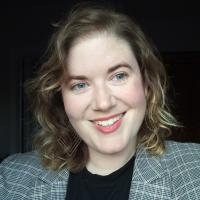
Biographical sketch: Jennifer Studebaker is a self-described business anthropologist with experience in research, communications, and project management. She graduated from Indiana University in 2010 with a BA in Anthropology and completed her MS in Anthropology at Purdue University in 2012. Currently, Jennifer works as a project and business integration specialist at the Kauffman Foundation in Kansas City, MO, where she’s been an employee for 5 years. Her first post-grad experience working for the Society for Ethnomusicology at Indiana University gave her experience managing projects for nonprofits and she has used anthropological skills in every role she’s held. Jennifer is also an active volunteer for the Anthropology Career Readiness Network and is passionate about the value of anthropology beyond the degree, sharing with us how an anthropological education equips students for success in any career field.
You advertise yourself as a business anthropologist. Do you feel like people understand what it means when you use that phrasing?
I think people usually understand it because I'll add another sentence where I'll say, ‘I use research to solve business problemsfor companies or organizations.’ So I think it's important to include it with a caveat. Because people aren't going to know what a business anthropologist is right off the bat. And I’ve experimented to just see what kind of hits you get in terms of what language you use. As someone with a communications background, I don’t think it’s fair to always assume that your audience doesn't know what anthropology is. But do your research on who you're trying to talk to.
What would you say you like the most about your job? And what are some things that make it difficult or that you would change?
The thing I really love the most about my job is the people I work with. I'm really fortunate to work with a lot of wonderful, smart, intelligent, fun people that care about other humans. That's one of the things that's just really lovely about working at the foundation. I think a lot of the challenges I have with my current job are more like general feelings about philanthropy in general, as an industry.
What advice do you have for us as anthropology majors?
One of the reasons why I've been so involved with the Anthropology Career Readiness Network is that in my experience as somebody that finished my education with a Master's, I got a lot of negative feedback from people about stopping at that point. I would go to my professors, asking what jobs they think I should look at, and they’d be like oh, you can be someone’s assistant, or you can go work at Starbucks. Would you say that to somebody with an MBA, you know? I have a master’s degree, it’s not nothing. So, I would say, remember that your skills are valuable. People do want to hire you.
There’s a lot that I think we take for granted in university settings, like being able to write well, to know how to interact with different types of people, and to even do cold calls, walking up to somebody and asking them a question. That’s something an anthropologist has to do on a regular basis, just reaching out to people to ask to interview them. Also, one of the real edges that anthropology can give you is if you try to treat all of your workplaces as study environments where you can use your observational skills to understand. So, really think about all of your interactions like opportunities to apply that skillset. Just realize that anthropology is really flexible in terms of the skills that you have, and in pretty much any industry, you can flourish with a degree in anthropology.
Jennifer Studebaker on LinkedIn
Anthropology Career Readiness Network
Rachel Olsson interviewed Nadine on February 2, 2024. The interview was edited for clarity and conciseness.
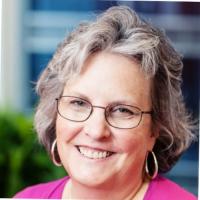
Biographical Sketch: Nadine Bendycki is a recently retired patient advocate and qualitative researcher and ethnographer. She graduated from Case Western Reserve University in 1978 with a bachelors in anthropology, and then again in 1979 with a Master’s in medical anthropology. Before retiring in 2021, Nadine spent eight years as the founding director of market research and decision support at University Hospitals in Cleveland, Ohio.
How did you first become interested in anthropology?
I started out with an interest in social and behavioral sciences, took an anthropology 101 class, and fell in love. I knew right away that I really wanted to study it. My dad asked, “Whatever are you going to do with this?” and I said "I don't know, I will figure it out. This is what I want to do.” It was an mind opening way of looking at the world both from an academic perspective and one that helped me understand divisiveness in politics and diversity of people’s opinions and religions.
How has anthropology shaped your career trajectory, and how did those skills contribute to your most recent position?
What was of interest to me was that there were so many questions that weren’t being asked. For example, it was fascinating that there were disparities in a city that had wonderful healthcare and atrocious maternal and infant mortality rates. My thought was there’s got to be a way for someone who has interest in social and behavioral aspects in life to make a difference. I find that people with anthropology training ask questions that the typical businessperson would never think to ask,
The world is looking for someone to help solve problems. What I do is I say to people, “Do you have a problem? I can help you with it.” In my last position, when I was recruited to universities and hospitals, I was interviewed by someone who asked, “Why you, why now?” I said, “The hospital down the street has had a robust market research function for 40 years, and you have nothing. You speak one language, and your patients speak another. Let me be your translator.”
Do you have any advising remarks regarding school, life, or careers?
You need networks. You need to connect with and be with people who are doing work you’re interested in. Ask to meet other people. Go to coffee or tea, and join groups online. Create and exploit these networks, and never ever think that you can’t do it. I’m telling you, you can!
Molly Lipps-Clase interviewed Sam on February 9, 2024. The interview was edited for clarity and conciseness.
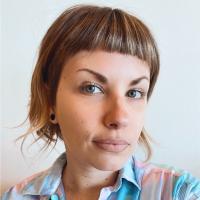
Biographical Sketch: Sam Streuli graduated from The Ohio State University in 2014 with a Bachelor of Arts in Anthropology. She then went onto UC San Diego to continue her education with a Master’s in Anthropology in 2016 and PhD in Medical Anthropology in 2021. Sam currently works for the National Environmental Health Association, a national professional membership organization.
How did you become interested in Anthropology?
I had never heard of Anthropology before choosing it as a major. I learned about it in a Sociology class. I went to a community college before transferring to Ohio State so that is where I learned about it and I thought that this is a cool way to combine my interests in the social sciences, and in biology. So, I wanted to pursue Biological Anthropology and then found out that Ohio State had a major in it. I wanted to be able to continue to think about humanity, social justice, and all these structural issues that interest me, but also look at things from a biological perspective.
Can you describe your current position and the organization that you work for?
I work for the National Environmental Health Association, a large environmental membership professional organization. They organize a big annual conference for environmental health professionals every year and they’re involved in all kinds of research projects. One of the bigger projects is the Retail Flexible Funding Model. It is funded by a grant from the Food and Drug Administration that focuses on food safety issues.
I am the Senior Research and Evaluation Coordinator. I basically design and manage research projects with a team. We do a lot of research on public health, health and food safety, and public health workforce development.
What advice would you give to Anthropology majors here at Ohio State?
The fact that you’re engaged in Careers with Anthropology is amazing. Those kinds of resources weren’t available when I was there, so you already have a head start. Keep doing those career exploration things.
Also staying on top of and being aware of what’s going on with the job market, like looking at job listings. Seeing what skills people are saying they want for this particular job that I’m interested in. Then look at how you can either gain those skills or market the skills that you currently have in a way that translates for the people that are hiring. Using the exact language that they use in the job ad.
Aidan Doyle and Keira Rees interviewed Joshua on February 28, 2024. The interview was edited for clarity and conciseness.

Biographical sketch: Joshua Sadvari is the Geospatial Information Librarian at The Ohio State University. He received his MA in Anthropology from The Ohio State University in 2009. Joshua also possesses a BA from the University of Pittsburgh, majoring in Anthropology, and a Master in Geographic Information Science from Kent State University. He has been working with the University Libraries since 2014 and is in his current position of Assistant Professor since 2019. In his role, Joshua’s duties include implementing educational activities that are associated with geographic information systems (GIS) in research and teaching. He also serves as a project advisor for researchers from all disciplines at the university who work with geospatial research methods. Joshua essentially works to provide the necessary tools and knowledge within a geospatial information context to make research efficient.
What did you find useful in getting your position within the university?
The opportunity with Ohio State came up for me at the perfect time and was the ideal blend of skills they were looking for at the time. I say that because I possessed the technical and subject expertise they were looking for and was someone skilled in GIS support. I was also a graduate student and was really engaged with the council of graduate students, and what the University Libraries were looking for was somebody who could develop and define this suite of services for graduate students. So, I essentially had the insider perspective and systems thinking quality in how I could approach the position. It was something I tried to convey when applying for the position, a broad understanding of the university. I can make connections between these different resources. I can present them to graduate students in a way that’s helpful in their own research.
How would you describe Geographic Information Systems and your work within it?
I think of it more broadly as this kind of suite of tools and techniques that can be used to incorporate a geographic component into problem-solving or a research question. It’s used to solve a variety of problems. The City of Columbus, for example, is conducting initiatives to try and make pedestrian and bicycle travel safer. They’re examining geographic data of the city infrastructure and they’re incorporating that perspective into the problems they’re trying to solve. It’s also something that can be used in almost any discipline where location could be important. In my context, it was things like the location and positioning of burials at the site I was working at. Helping people use geospatial data in their scholarship is a big part of my role right now.
How does anthropology help you in your current role?
It’s variable. I would say the skills I developed through the anthropology program like communication, collaboration, understanding how to scope a project, how to review scholarly literature, and even reading papers to scope out important details helped me a lot in my own research. The openness to different perspectives and approaches to problem-solving was helpful as well. I don’t always have to or want to be the person that has the answer. I want to understand how we can get to the answer and try to be open in our research. And sometimes, I help people who are, you know, in anthropology research, in an anthropological topic, or working at a field site as well. So there are instances where it’s easy to see the relationship. In many other cases, I think it’s just those other skills that you build up as a student.
What advice would you give to anthropology students?
The first thing I would take advantage of is the structures that I see existing in academia right now, this could be certificates in GIS, DEI, or anything else where you get to take classes across several different disciplines. There are programs where you’ll also develop some of the transferable skills that would be conducive to moving into a career right after an undergraduate degree. The other thing I would mention is that when applying to positions, try to think about the impact that you want to have or what you can bring to an organization as opposed to just the skills or experience. When you are applying for jobs, do as much research about the job as you can to tailor your materials and communication to what the company actually needs. This is also true for anthropology. I don’t know how many people are going to know what it means to have a degree in anthropology. You really have to talk about how you will be able to help the organization.
The Ohio State University Libraries
University of Pittsburgh Masters in Anthropology
Kent State University Masters in GIS
The Ohio State University Graduate Certificate in GIS
Rachel Bucher and Effie Palassis interviewed Erin on March 22, 2024. The interview was edited for clarity and conciseness.
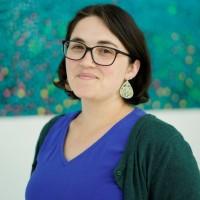
Biographical Sketch: Dr. Erin Kane got her MA and PhD in Anthropology from The Ohio State University, focusing on Diana monkey endocrinology and socioecology in Côte d’Ivoire. After completing her PhD, Erin was a postdoctoral researcher at Boston University studying orangutan nutritional endocrinology in Indonesia. She currently works at Boston University as a scientific program manager in the Department ofComputational Biomedicine. She is also working on a second master’s degree in Data Analytics. Erin speaks English, French and Swahili, and has a passion for making science more available for everyone.
Why did you choose anthropology? What about the field sparked your interest?
When I was 13 years old, I was looking for a book to read at the Public Library, and my dad found me a copy of Jane Goodall's book, In the Shadow of Man. So, I read that book and thought, “Oh, that's what I'm going to be when I grow up!” So, that was kind of at the end of middle school, and I was really, really focused ongoing to college to be a primatologist. I studied French because I knew that I wanted to go to Africa, and French is a common language in Africa. I went to college at Washington University in St. Louis in part because I was invited to be part of an ecology and environmental sustainability program. Also, when I visited, the professors let me meet the two faculty members at Washington University who were involved with primate research, and they were both excited to hear that I was already excited about primate research myself. I don't know exactly what it was about In the Shadow of Man that spoke to me so much, but I knew that I was going to be a primatologist, and that was really what drove me into anthropology.
What skills or things that you've learned throughout your college education that you feel really help you in your career now?
To kind of give you a broader understanding of what I did in undergrad, I was really focused on anthropology. I did an undergraduate major in anthropology with a focus on bio anthropology, and I was working in a professor's lab preparing fossils for him. I had also been taking Swahili because, similar to taking French, I knew that if I was going to work in Africa and I spoke English, French, and Swahili that would get me alongon most of the continent. Because I’d been taking Swahili, the professor took me with him to Kenya on a dig. I was like his research assistant, and he sent me to do things like grocery shopping because I spoke Swahili,and then he wouldn't have to leave the fossil sites.
I also studied environmental studies and just tried to get everything that I thought would make me a really well-rounded anthropologist and a good candidate to go to grad school. That was really what I was focusedon, and I don't know that I took as much opportunity to think beyond what would make me a good primatologist when I was in undergrad because I was so sure that that was what I was going to do. I got into graduate school at Ohio State and ended up working as a graduate student for Scott McGraw. He sent me tothe Ivory Coast, where I had the opportunity to work for about two of the seven years that I was in the graduate program. One of the main things that I was doing, other than actually doing my research, was managing his field site for him. I was the only kind of representative from the United States, so I was in charge of things like keeping track of the budget for month to month, making sure that the research assistance got paid, making sure that the villages didn't have any problems with the research being done, and making sure that everything was being taken care of in a responsible way, so the project kept running. I think that was a skill that I really didn't know I was developing while I was actually developing it. But the ability to be independent in the field doing my own thing but also keeping track of all of the other things that were supposed to be happening at the same time, and understanding how to negotiate between people with really different backgrounds and really different ideas of what should happen was actually extremely important. That skill did a lot to set me up for what I'm currently doing.
How was the transition for undergraduate to graduate school? What was different?
As an undergraduate, the entire university is oriented around your experience. You are the person who's making money for the university, so they want you to have a good experience, and they want you to feel supported. There are all sorts of systems in place, but the goal is for undergraduates to have a good experience.
In graduate school, it's a much more departmental experience. You have a cohort when you come in, and in my case, there were seven other people who started the program at the same time as me. Those are reallythe only people I knew at Ohio State, those seven people. Then once I started taking some other classeswithin the program, I knew a few more graduate students, but I never felt like the entire university was for me. The anthropology department was my space.
The one thing I wish I'd done was take more advantage of Ohio State and all of the resources and different departments and activities. But what the format of graduate school does is let you have a real impact on the place where you are. There were things that the graduate students were concerned about that we were able to bring up and make changes to within the space of our department.
As an undergrad, I went to Washington University and that was my community. As a graduate student, I was an anthropology graduate student, and so the discipline of biological anthropology was sort of my intellectual home, not just Ohio State. So, in addition to having a bounded space to make a difference, you can alsostart seeing the discipline become a space where you can work, make connections, and improve things or tackle interesting questions in a different intellectual context.
Lucy LoBello interviewed Leslie on April 5, 2024. The interview was edited for clarity and conciseness.
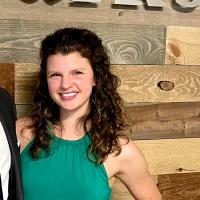
Biographical sketch: Leslie Minney graduated Magna Cum Laude from Ohio State with her dual Bachelor of Arts degree in 2014. Minney double majored in international studies and anthropology and double minored in Sub-Saharan African studies and globalization. After graduation, Leslie served in the Peace Corps as an Agribusiness Volunteer in Cameroon. She later received her Master’s Degree from American University in Ethics, Peace, and Global Affairs at the School of International Service and The School of Philosophy. Here, she concentrated on International Peace and Conflict Resolution and Environmental Peacekeeping and participated in Substantial Research in Religious Ecologies in Iran. Leslie currently works as the East Africa Program Manager for the U.S. Forest Service and has held this position since October 2021.
What made you continue with anthropology? Did you know you wanted to pursue it as a career path while in undergrad?
No, I did not know that I wanted to pursue anthropology. I am from a really small town in Ohio; I came to Ohio State and got bombarded with all these new things. I had my first trip abroad. I realized that my top interest beyond development was culture and understanding and thinking through the ways that humans relate to their environment, but also in general, like traditions and the richness and fullness of experiencing those things. And I was completely taken by that first trip abroad. And so, I kept pursuing that, I eventually decided to focus on cultural anthropology in addition to international development studies. Throughout my career, it's been present in everything I do.
Since graduating, how have you used what you learned in studying anthropology, for example, in your current position?
I mostly use anthropology to understand the people I work with and serve, not only my immediate colleagues but also the stakeholders of our work. What's been the most valuable to me is understanding where different people are coming from and what their priorities are when you enter into a conversation. Sometimes, you're building a relationship. Sometimes, it's more practical, like getting down to the strategy. And people have different things in mind. For me, it's understanding my environment. Anthropology gave me the skills to be able to really assess what's going on. And also, the context, right? Because it's not just people. We're also in an environment, and there are geopolitical things to consider. There are all sorts of things happening outside of the immediate environment. We live in a complex world. That's probably the biggest way that I still use anthropology today, and when I say that, I mean I use it every day. It's been pretty important to me.
You mentioned that it's common for people to move from a contractor position to a permanent position. Can you explain your thought processes and how you advertised yourself to make yourself more marketable for a permanent position?
In a previous position I held as a contractor, I was doing a lot of work for my job; I felt like I was doing several jobs in one position. The bright side about that is I was included in financial conversations. So, I got to talk about how much funding went to certain activities. I had an idea of what we were operating with, and I eventually got enough responsibility, which made me feel confident approaching one person I felt was my champion in my job that I could openly talk to about my professional goals. I approached her, “this is kind of a big, a big deal for me; I'm ready for something more permanent. Is this a possibility, or really, should I look elsewhere?” I was able to be pretty honest with her about what I was thinking. I had a list of my accomplishments during my time in that position, because that was a resource for her to go to her superiors and support me further. As time went on, in other positions, I became more comfortable broaching the topic because I had done it before. Everyone will have personal reasons; some folks prefer contractor positions because they sometimes pay better. You have more leeway to negotiate your salary. Government work can be more set, there is more job security, and sometimes better benefits. So, I knew that that was what I wanted. I wanted that job security instead of working from year to year on a contract that I didn't know when it would come through. I wanted more stability. And that was a conversation I had with my supervisor, who was super supportive.
American University Master’s Program
https://www.peacecorps.gov/cameroon/
Idil Gurreh and Emily Reese interviewed Taylor Bryan on Monday February 12, 2024. The interview was edited for clarity and conciseness.
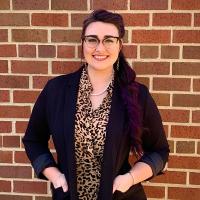
Biographical sketch: Taylor Bryan is a bioarchaeologist, who currently works as a Lead Burial Excavator for ASC Group where she manages all ancestral remains. She works full time at a site called State Line between Indiana, Kentucky and the Ohio River. She is also an active volunteer for a nonprofit where she works with KYK9 search dogs to find human remains combining the canine element with archaeology. Taylor graduated from Ohio State University in 2018 with a BS in Anthropology with a concentration in Forensics and Bio archeology. As an undergrad, Taylor worked for the Franklin County Coroner's Office as an intern. She gained more insight into anthropology, which would have been impossible inside the classroom. She also attended the Citizen Police Academy in Columbus to understand how the police and forensics work together.
What got you interested in anthropology?
When I started at Ohio State as a freshman, I was originally a medical laboratory science major. I was interested in forensics at the time when there was no forensic degree in the anthropology department. It was a minor, kind of a like choose-your-own adventure where you craft your coursework around what you're interested in doing. So, when I started school, I thought I was more interested in lab work with my interest in genetics. As I got into it, I got involved with a field school. I concentrated more on osteology which led me to realize that my heart was really in the field.
Can you talk about your current position and what you do on a day-to-day basis?
Just to give you a broad overview, I am a bioarchaeologist who manages all of the ancestral remains for a company called the ASC Group. My role is to keep us compliant with the statutes of Native American Graves Protection and Repatriation Act (NAGPRA). I work with tribal monitors to make sure that everything is done to their wishes, and I communicate with my team of archaeologists. I work full time at a site called State Line, which is right where Indiana and Kentucky meet along the Ohio River. and it's a Fort Ancient village site. So, for the last on and off 4 years or so we have been mitigating burials, Fort Ancient structures, and over 800 features in situ features. But I work in CRM, which is Cultural Resource Management, which is basically commercial archaeology. It is everything that falls under Section 106, which is the legislature that mandates archaeological investigation and its 3 phases before a project can continue.
How did you get the position of being an intern for the Franklin County Coroner’s office?
I was a student at the time, window-shopping the different facets of anthropology at-large. I had this vague idea of forensic science. I was interested in the technical aspects of lab work but did not want to be indoors full time. And so, I had this little sort of sample platter set up of different things, and one of those things was at the Franklin County Coroners. It was a special opportunity where you could (at least when I went there) either be a formal intern or you could also shadow the autopsy technicians. They were extremely welcoming, and it was surprisingly hands on. It was the kind of exposure I was looking to get; Do I want to be a forensic technician? Do I want to perform autopsies? So, I would assist with those autopsies, and I got a real sense of respect for what they do every day. You also get a sense of what you could be doing as a field employee, or, you know, say, if I were out with KYK9 and we found something in an active case, you know, there's evidentiary practices. There are methods for the handling of human remains. So, it's like everything you learn already in anthropology, when you're working around human remains, is always in play no matter what you do. But it was very useful to kind of see that and I did that for just long enough to be fascinated by it. But it's obviously very heavy work, and it wasn't something that I felt like I wanted to do fully for a career or specifically autopsies.
Is your current position where you envisioned yourself while you are an undergrad? Is your current job your end goal? Or do you feel like you're going ahead?
I do plan to go back to school for my Masters in anthropology. I am applying for the program at the University of Cincinnati since it is close to home. I am going to stick with the Cultural Resource Management (CRM) field just because it is so much fun. It is very unpredictable. You never know what the weather is going to do or what you are going to find. You dig many empty holes, but sometimes you find some cool stuff, especially at State Line. I had all these random nuggets of information and people I'd met who'd help me along the way, and then I started the field, thrown into it immediately after school and haven't stopped since. And so, it's that sense of street smarts and book smarts; I feel like my street smarts meter is way up, but I would like to match that with being just as technical, I want to be as qualified as some of my colleagues and to be able to use that to my advantage in my role. So yeah, I'dll be sticking around and hopefully it seems I am to continue excavating at State Line during my masters, which will be challenging, but it can be done.
Franklin County Forensic Science Center
KYK9: https://www.kyk9.org
Grace Bell interviewed Addy Cary on April 12, 2024. The interview was edited for clarity and conciseness.
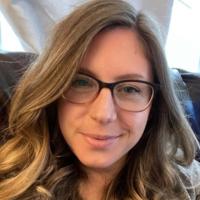
Biographical Sketch: Addy Cary is a User Experience (UX) Researcher and Senior Manager at Cardinal Health. She graduated with her bachelor’s in philosophy in 2008 from the College of Wooster. She later returned to school and pursued her M.A. in anthropology at The Ohio State University which she graduated with in 2019. She started her career at Cardinal Health in 2021 as a Consultant in UX design and, since 2023, has worked as a Senior Manager for UX research at the company.
What sparked your interest in anthropology? How did it guide your career today?
My interest in anthropology actually started when I was a kid. I've always really liked stories, and I've always really had a strong interest in mythology. I got really interested in stories and the kinds of different kinds of stories that different cultures tell themselves about themselves. That actually started when I was fairly young, and then in high school I delved a little bit more into it. When I was in college, I intended to be a double major in anthropology and philosophy, but at the College of Wooster you have to write a thesis to graduate, and I was having a really hard time kind of marrying the two up, so I ended up doing my bachelors in philosophy and minoring in anthropology. I graduated in 2008 with my bachelors, which was not a great time to be coming out of college. So, I actually ended up working for my family business in manufacturing for a number of years before I went back to graduate school.
I did my masters in biological anthropology under Dr. Barbara Piperata. Specifically, I was looking at food, insecurity and maternal and child nutrition, and I also helped with some preliminary research and writing grant proposals around the research that she's doing now around the human microbiome. I found out that I wasn't really that interested in teaching, and I realized that academia was probably not the best career path for me. I was a Ph.D. student, but I decided that I didn't want to finish. I wanted to find a path that was more in line with my overall goals. And so that is when I did a Google search for things you could do with a masters in anthropology and I found user experience research.
What made you want to pursue graduate school? Did you always think you were going to pursue it?
Yeah, a lot of things changed for me. When you're young, you think you're going to get onto a path, and you just take that path right? That was not how things worked for me. I thought I was going to go to graduate school for philosophy. Actually, I met with professors at the University of Edinburgh, and I was all lined up to apply. They were going to write me letters to get me funding for all this stuff and then I met my husband, and that threw a real wrench in the works of me moving to Scotland. And I ended up, you know, taking a very different path than I had kind of planned. I always thought maybe I would go to graduate school. But I'm glad I waited because I felt like when I finally went, I was in the right place, and if I had rushed in, I think it wouldn't have been the right path for me.
What are some of the ways anthropology has helped you prepare for your career?
People take all kinds of different paths into user experience. It's a tech field. So, you have people who come from all kinds of different fields and backgrounds. One of the people who reports to me used to work for as a producer for the Food Network. One of my direct reports has a PhD in Russian history. It's just that it is a winding path for a lot of people to get into this field. For me, the thing that really helped me was that a lot of what we do in UX is like anthropology. It's a lot of understanding what the variations are in terms of human behavior, how to interpret human behavior, and how to get other people to empathize with people who are encountering issues. There's a lot of overlap in methods: observations, surveys, and even focus groups.
Were there any internships or specific experiences you participated in while in school that you feel were really beneficial to you and that you would recommend to others?
I didn't do an internship, but I did go to Nicaragua to do field work for a summer, and I would recommend doing something like that to anybody. If you have an opportunity to work as a research assistant and go into the field, you should take it. You should always take it just for the experience if nothing else. For me it was really critical because I did interviews, I did observations, I got to really stretch in a way that I think I wouldn't have otherwise, and I got to apply a lot of the things that I learned. I'm still applying the lessons that I learned when I was in the field. The thing about your first time doing fieldwork is that nothing is going to be perfect. It's going to be a very big learning experience, and you can't be perfectionistic about it. You have to understand that that's what it is, and if you take that attitude and you take it as an experience to learn and to grow, and you know you're not going to be perfect at it, It is invaluable. If you beat yourself up about it, then you can spiral. But I would say anybody should go do field work if you get the opportunity, you should go.
Naa Dromo Korley interviewed Rachel Hutchison on April 15th, 2024. The interview was edited for clarity and conciseness.
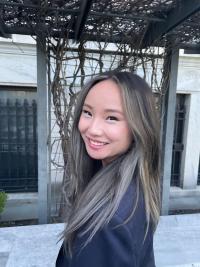
Biographical Sketch: Rachel Hutchison (she/her/hers) is an alumna of Ohio State University, who majored in anthropology and psychology. She has been interning at the Cleveland Clinic for inpatient psych/behavioral health care. In 2024, she graduated from Case Western Reserve University with her Masters of Social Work with a concentration in mental health with adults/trauma informed care.
Where did your interest in anthropology come from?
I took an intro to what they called a physical anthropology, I think it fulfilled a general education credit, and I was undecided. It was like my second semester of university, and I found I just really liked it. And I was kind of like reading the textbook, but it never felt like I was studying. It was a kind of like fun, like a scavenger hunt for answers. I've never really had that kind of feeling like when studying before. So that was a good sign.
What made you choose anthropology as a major or career path?
I liked how broad it was. It was interesting, I like that. I kind of really like to learn about monkeys and teeth especially when I took Physical Anthropology. I don't do anything with that now, but it was cool to learn about.
Did you ever have any doubts about pursuing a degree in anthropology? Why or why not.
It’s just because it was so broad that it was hard for me to understand exactly how I would use it in a professional way. I got a little bit nervous. When you know everything shut down because of the pandemic I always wanted to go to graduate school, and I didn't know what that would look like if I stayed just with anthropology. I was also considering adding another major anyways.
What did you do in college, and how did you prepare for life beyond the degree? Did you know what you wanted to do when you, an undergraduate student?
Honestly. No, I didn't. I was still trying to figure it out. I think it was my senior year. And by then I had finished college online. I graduated in 2021 and I wanted to be a mental health counselor. Especially because when the pandemic was happening, more people were struggling with mental health, and this made me want to help in that way. When I finished, I added psychology to my major and did a gap year, and I think that the gap year kind of solidified it for me, that I really enjoyed working with people. I still do like my anthropology background. It's helpful in things that I do, because it's much more holistic and it considers other things than just the individual, like the environment that they're working in as well.
What made you get a master's in social work and not anthropology?
I think the pandemic honestly kind of scared me a little bit. I wasn't sure how long it would last. I always planned to go to grad school. At the time I thought it would be for anthropology, but then I found social work. During my gap year, I did work one year for City Year America, and I worked in a classroom with seventh graders, and I think that that's where I found a population that I really love to work with. So, then I thought, like, okay, I like to work in the mental health field, and I like to work with kids. And then it was kind of about putting those two things together. I kind of view social work as a combination of anthropology and psychology because it focuses on the individual but it's more holistic.
How have you used what you learn instead of anthropology since you graduated, for example? In your current master's degrees. How are you using anthropology?
I just kind of use it as an additional helpful lens. Even in my personal relationships and professional life, I think it's just kind of a plus. I think it encourages people to be more open, it's good to be more open. For example, when I was working in City Year, I was working with a population that was much different than how I grew up and I was in a bit of a bubble because it was a different environment. When the kids would for example not sit down and pay attention, I initially viewed them as being unruly or misbehaving but then I began to think like “Well, they just came back from, you know, the pandemic. This, like literally their first year being back in a physical classroom.”
So, what kind of internships, research or field school opportunities were you able to take advantage of during your time in college?
I traveled abroad once in undergrad. The class I took for this trip was called HIV in context. We went to Tanzania for a month in the summer of 2019 and that was helpful and kind of like eye opening because I've never really traveled out of the country before that trip.
Morgan Riddiford interviewed Kelly Zongo on October 21, 2022. The interview was edited for clarity and conciseness.
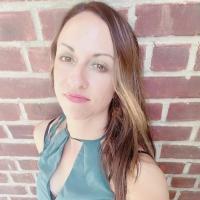
Biographical sketch: Kelly Zongo graduated with a Bachelor of Arts in Anthropology at the University of South Florida in 2003. She immediately went on to Tulane University to earn a Master of Public Health where she spent time in the Democratic Republic of Congo managing a diverse portfolio of humanitarian and development programs. Kelly completed her Ph.D. in Medical Anthropology at The Ohio State University in 2019 with her dissertation titled, The capacity to aspire of Rwandan urban refugee women in Cameroon. During her time at OSU, she worked as a graduate teaching associate for the undergraduate anthropology classes Women, Culture, and Development (ANTHROP 3597.02) and The Anthropology of Mental Health(ANTHROP 3340). She now works as the Director of Programs for The END Fund, a philanthropic fundraising service based in New York that seeks to control and eliminate the most prevalent neglected diseases.
Do you find anything special or unique about anthropology compared to other majors?
There was something that drew me into anthropology, and some other disciplines like human geography, that was just the way of asking questions. Asking them in a more open way and allowing for surprises in the answers. I had been working in public health, even since high school, as a volunteer and it’s just a lot of close-ended questions and surveys, and even when I was doing HIV outreach it felt like there was a disconnect between the understanding of the populations we were targeting and the people who were working there. So, the messages were off. And so, I just felt like there’s a lot of potential in anthropology in the way that we look at and try to understand problems to apply to that type of work.
How did you know you wanted to go into public health?
When I was 15, I started volunteering first at a Make-a-Wish Foundation, which focused on cancer, and then HIV and AIDS task forces. I was really interested in that field. But I really had no idea exactly of where I wanted to take it, especially at that age. I wanted to go into the health field but there was no way I was going to be a nurse or a doctor because I didn’t want to be in the clinical context. Public health has the potential to have a larger impact, because it’s preventative rather than curative. And for me there was something appealing about that. Also, when I was 18 years old, I saw Paul Farmer speak, and that was very inspiring to me. He was a medical doctor and anthropologist, but he really focused on anthropology when he spoke, and I really like a lot of his work.
How did you find the transition between undergrad and grad school? Was it different or was it pretty similar?
No, it was very different. I’ve always been a very hard worker and really driven and ambitious, but the classes were way harder. I had to take this health econometrics class. It was my first class I had to take for my master’s program, and it was a short condensed two-week class before the fall semester started and I didn’t even understand anything that the Professor was talking about. To me, I think I was young and underprepared in some ways. A lot of the other students had other work experiences and were older than me. I just had to work extra hard since I didn’t have the experience, other than volunteer work. I definitely spent a lot more time on my course work in my master’s than I did in my bachelors. In my bachelors, I was an honor student, so I had to do a capstone project, but I was able to fit in more leisure time than in my masters. Granted, my master’s program was very condensed because we had to fit all of our coursework into one year.
The career and position you're in now, was that something that you envisioned yourself being in or is it just something that happened?
I did not really envision it. I was doing a lot more gender focused work and I really enjoyed that. That was the direction I ended up going in for my dissertation and with the World Bank. But with the World Bank I was a contractor, and with my current organization I have colleagues based in New York and benefits and better working conditions. This position is focused on neglected tropical diseases. I am going back to infectious disease which is what I was doing way back in undergrad. It’s focused on these five neglected tropical conditions and doing preventative work there with the focus on gender and equity and disability. I do really like it. It was very unexpected. I wouldn’t have seen myself necessarily going in this direction, but because it’s a relatively small organization, and I have a pretty senior level position, I’ve been able to establish my own work projects. I’ve been able to establish some larger gender, disability, and equity focus projects within the organization. I’m very happy with it. It’s exciting actually to work on something that for a lot of these diseases we envision elimination by 2030, so to be a part of that is really exciting.
Would you recommend the Peace Corps?
I would definitely recommend the Peace Corps, especially if you want to go into fields like global health or development because it’s so competitive. If you don’t have language skills or experience overseas it is very, very hard to get into. But also I just think in general the skills that you get in terms of learning how to be resourceful cultural competency, putting yourself in a position where you have to learn so many things even though you have a degree is a humbling experience. You have to be really resourceful and deal with challenges and disappointments by yourself.
Do you have any last words of advice for undergraduates?
Yeah, I would just say to make sure to not be afraid to ask a lot of questions. If you aren’t sure where you want to do a master’s program or what you want to do rather than just applying and trying and seeing how it goes, try to talk to people and ask questions! Really, don’t be shy! I find that my students sometimes are shy but it’s really important to do it and it helps you. You never know how the conversation is going to go with someone and if they end up being someone who becomes a mentor to you or helps you review your personal statement or things like that, so just make sure to ask a lot of questions and to not be shy to reach out to people. They’re just people.
Lexi Bruno interviewed Ana on September 9, 2022. The interview was edited for clarity and conciseness.
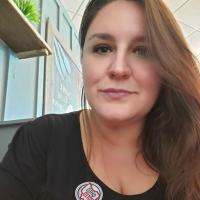
Biographical Sketch: Ana Casado graduated with her bachelor's degree in 2007 from the University of Tennessee. Ana had the amazing opportunity to work on The Body Farm at the University of Tennessee. She received her master's degree in 2010 which was completed at The Ohio State University, and her Ph.D. in 2017 which was also completed at The Ohio State University where she was trained in Forensic Anthropology. Her experiences led her to her position as Graduate Program Coordinator and Grants Coordinator in the Department of Engineering Education at The Ohio State University. Ana Casado is currently the Assistant Dean of Graduate Recruitment and Strategic Initiatives in the College of Engineering at The Ohio State University.
What was your interest in Anthropology and how did you choose your Anthropology Career?
I was an undergrad at the University of Tennessee in Knoxville, and I was a political science major. I didn’t know what anthropology was. I took an anthropology course to fulfill a GE. The anthropology course was biological anthropology. I ended up really liking it. Without thinking much more I changed my major because I believed that you should do what you enjoy, and careers will follow.
When you were an undergraduate how did extracurricular activities help you progress in your career?
I happened to be in a very good place for Forensic Anthropology at the University of Tennessee in Knoxville. The University of Tennessee has the first body farm. It is an outdoor facility that studies human decomposition. I got a lot of experience there. I was doing 10-15 hours of work a week in the last two years of my undergraduate degree. I also had a couple of faculty mentors that were completing research projects I was able to participate in and present a lot of posters. I think it is very valuable to get outside experience because if you don’t, I don’t think you can really know that you want to do.
Did you find getting a master's degree and PhD useful for your career?
I think about this a lot. If I had to go back and time and do everything over again, I do not think I would do anything differently because the experiences I had were very beneficial to me. Even though I am not a Forensic Anthropologist I have a lot of fondness in my heart for that time and I learned a lot. The work experiences have helped me realize what I do like.
Do you have any advice in terms of preparing for life beyond an undergraduate degree, a career in Anthropology, or just life in general?
Try to have as many experiences as possible because I think that is more than a degree. Think about things that will help you grow and potentially help you. Try to do internships or research experiences. Try to do all sorts of things because you never know whom you are going to meet. You also never know what skills you are going to acquire for life. If you are feeling lost, backward plan your life, start with your end goal, and determine what you want to accomplish.
Ana Casado on LinkedIn Profile
University of Tennessee Forensic Anthropology Center
The Ohio State University College of Engineering
.
Delaney Murray and Bella Koper interviewed Amanda on November 28, 2022. The interview was edited for clarity and conciseness.
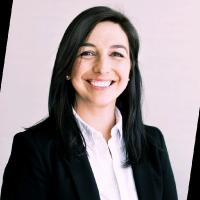
Biographical sketch: Amanda Wright graduated with a Bachelor of Science in Anthropology, Forensic Science, and Life Science from The Ohio State University in 2008 followed by a BA in criminology and criminal justice at Ohio State graduating in 2010. She then attended the University of Florida to get her graduate certificate in forensic death investigation to return to The Ohio state university in order to earn her graduate certificate in public and nonprofit leadership. She received her master of public administration in 2023. Career-wise, she was previously the chief of investigations and morgue operations for two years before entering her current position as the Director of Operations at the Franklin County Forensic Science Center.
How were you led to anthropology regarding your career path?
My initial plan was to become a forensic pathologist which requires medical school so I thought genetics would be the route to go which not many people chose and why I did. As time went on, I realized that I no longer wanted to be a physician because forensic pathologists are not the ones going out to the field and I wanted to be the one to go out to the field and collect the evidence and interview and talk to families.
Are there any skills you use in your career that you did not learn from anthropology, maybe from other disciplines or extra-curricular activities?
As a part of my minor, I did a textile class just in case you fall into trace evidence of some sort you can know what to look for. It was good knowledge to acquire and to have the different fabrics and what to look for. It was a design class, so even though I was the only science person there I think it still applied.
What would you advise graduates in terms of finding jobs?
We didn’t have what there is now when I graduated--things like LinkedIn and emphasis on internships--but It’s not always what you know it’s who you know. What helped me with getting into the coroners was when I toured the crime lab and the coroner had asked the persona touring about me. So, it’s who you may know and someone they know three people down the road and that could all help you.
What advice do you have for current anthropology students?
Don’t get discouraged and keep pursuing. It may not be the pathway that you planned, but the endpoint is actually where you want it to be. I applied for several jobs at Ohio BCI applying to at least 5 a day hoping to get into something and although it wasn’t quite geared towards what I wanted, it still had some type of forensic or science background. I even applied for jobs at the Ohio Department of Transportation knowing that it could lead to something working with another agency just because I had already worked in parking and transportation. Your end goal might come to you in a different way than you expected.
